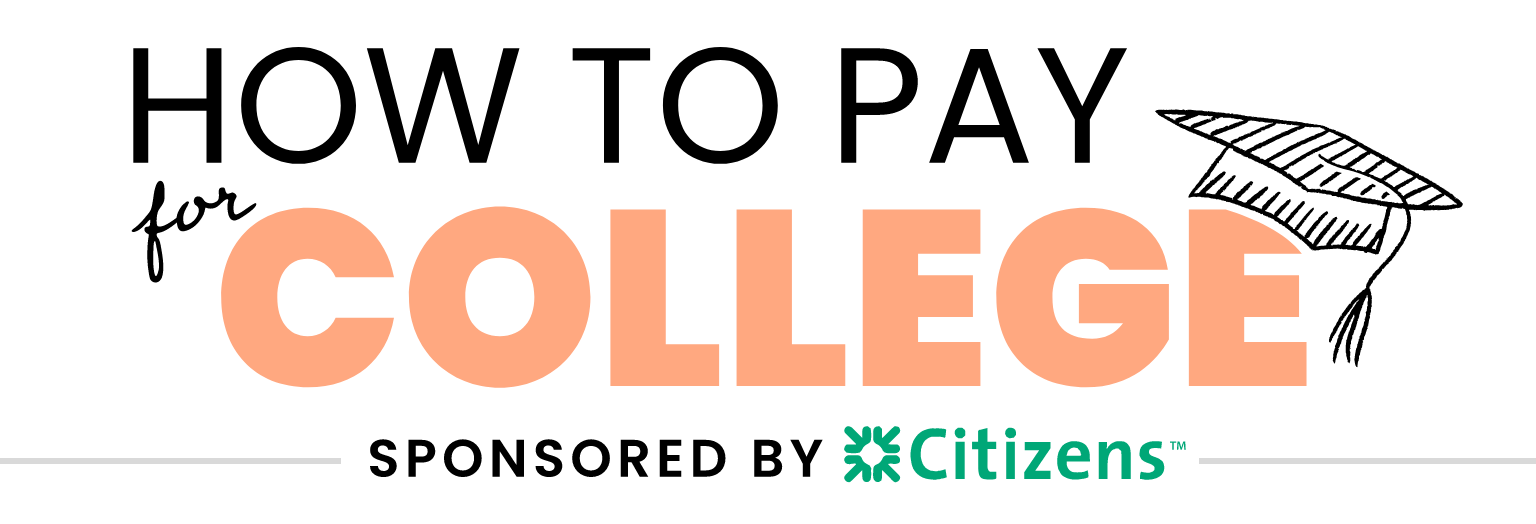
This article is part of a paid partnership between Citizens™ and HerMoneyMedia
The Free Application for Federal Student Aid (FAFSA) is getting an overhaul — but that won’t happen until the 2024/2025 school year. Until then, students looking for federal loans and grants must fill out the FAFSA as it exists today. Although it is a long and complicated application, with more than 100 questions, the good news is that there are ways to make it easy and painless. From embracing the internet to syncing with the IRS, here’s how to get it done in record time. You’ve got this!
Don’t Assume You Won’t Qualify
The FAFSA is the gateway to federal grants, aid, and federal loans. If you don’t complete the application you could pay more for college than you need to. Nonetheless, many people don’t bother applying.
“The FAFSA is a critical step in the college application process, and should be one of the first things families do when the application opens in October each year,” said Christine Roberts, Head of Student Lending at Citizens. It’s the first step in the process of paying for college and can unlock “free money” such as federal grants, and it can qualify students for the Stafford Loan. “Many families might see the FAFSA as unnecessary because they don’t think they’ll qualify for anything, or too burdensome to complete, but by failing to fill it out they’re missing out on tens of thousands of dollars of aid via the Stafford Loan, as well as potentially much more,” said Roberts.
Skip The Paper Application
New legislation making its way through Congress is designed to shorten the process of applying for federal financial aid. While the Department of Education works out the kinks, borrowers have three application options: paper-based, online, or via a mobile application. If you want to speed up the process and reduce the chance of making mistakes, experts say to choose the online or mobile application options. “The best perk of the online application is it includes skip logic,” says Jill Desjean, a policy analyst at the National Association of Student Financial Aid Administrators (NASFAA). “On the paper FAFSA it might say jump to a question if you answer this and that gets complicated.” If the question doesn’t apply to you, the online and mobile application automatically skips it. That cuts down on time spent trying to figure out which question to answer and reduces the likelihood of providing the wrong information. Another handy tool is the digital “help” feature, which enables you to click on a question mark to get further explanation. “I think the vast majority of people use the online application. It’s a better choice if you have broadband access. There’s a mobile app if you don’t have a computer,” says Desjean.
Get an FSA ID
To streamline the application process and to make corrections more easily to your FAFSA, the Department of Education urges borrowers to get a FSA ID. It is a username and password that can be used to log into your FAFSA application. It isn’t a requirement to submit a FAFSA form, but it is the quickest way to sign the application and process it. Without a FSA ID, you can’t correct information online or pre-fill information with a prior year’s FAFSA information.
Use The IRS Data Retrieval Tool
Completing the income portion of the FAFSA can get tricky. Inputting wrong information can slow down your entire process. One of the best ways to ensure everything is correct is to use the IRS Data Retrieval tool. “It’s very easy to use and cuts about a page of questions off your form,” says College Financing Expert Mark Kantrowitz. If you don’t use the tool, the college your attending may require an IRS tax return transcript to ensure your information is accurate. The IRS doesn’t charge for the transcript, but it does take time to get. Kantrowitz says you’re less likely to be selected for verification if you use the IRS tool. When that occurs you’re required to provide documentation to back up the information on your application.
Gather Documents
Even if you use the IRS Data Retrieval Tool on the online or mobile application, it will still take time to complete the FAFSA. You can speed things up by gathering necessary financial documentation ahead of time. This includes your social security card, bank statements, a list of assets reported as of the date you are filing the FAFSA, and brokerage statements. “Having all the information handy upfront will speed along the process,” says Desjean.”You want to have it handy so you don’t have to jump out of FAFSA.”
Details, Details, Details
The approval process for federal student loans can take anywhere from three days to three weeks. An application riddled with mistakes will take longer than one filled out correctly. That is why it’s important to make sure you’ve got all the details right when completing the FAFSA, rushing through it is not an option. “I’ve seen people not use their legal name or get their date of birth wrong,” says Kantrowitz. “The most common errors involve social security information.” Mistakes can happen when entering income information or leaving fields blank when they require a “0.”
Don’t Be Afraid To Ask For Help
When it comes to filling out the FAFSA, you don’t have to go it alone. For families with high school students preparing for college, guidance counselors can be a great resource. For returning college students, your school’s financial aid office can answer any FAFSA questions you may have. “The FAFSA might seem overwhelming, but there are plenty of tools and resources that families can seek out. My advice is to take your time and complete the FAFSA carefully and thoroughly, just like you would any other part of a college application,” says Roberts.
MORE ON HERMONEY:
- How to Pay for College
- The Silver Linings of Student Debt
- You Worked Hard to Stock the 529… But Do You Know How to Use It?
- More Than One Kid = More Than One College Bill. Let’s Strategize.
Get more money saving + money making tips delivered right to your inbox: Subscribe to HerMoney today!









